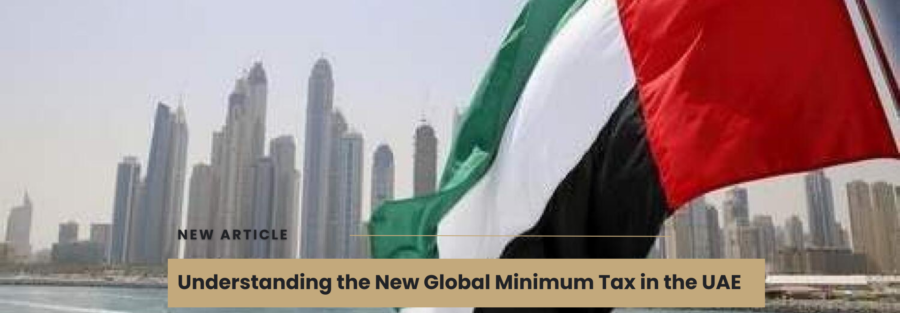The UAE’s Ministry of Finance (MoF) has initiated a digital public consultation to gather feedback from various stakeholders on the implementation of a global minimum tax in the country. This initiative is particularly aimed at multinational enterprises (MNEs) operating in the UAE, their advisors, service providers, and investors. The feedback will help shape the domestic implementation of the tax and ensure it aligns with global standards while minimizing compliance costs.
What is the Global Minimum Tax?
The global minimum tax (GMT) targets multinational enterprises with annual consolidated revenues of €750 million (approximately Dh3 billion) or more. This tax ensures that these MNEs pay at least a 15% tax on their excess profits in every jurisdiction they operate. The GMT is enforced through two main rules: the Income Inclusion Rule (IIR) and the Undertaxed Profits Rule (UTPR), collectively known as the global anti-base erosion (GloBE) rules. These rules aim to prevent profit shifting and ensure that MNEs contribute their fair share of taxes globally.
UAE’s Approach to Implementing the Global Minimum Tax
Currently, the UAE’s MoF is in the consultation phase, seeking input from relevant stakeholders. This consultation will gather insights on domestic implementation issues, interactions with the UAE’s Corporate Tax (CT) system, and ways to minimize compliance costs. The Ministry is also exploring policy options for potential implementation of the IIR, UTPR, and a Domestic Minimum Top-up Tax (DMTT).
Stakeholders have until April 10 to submit their responses via the Ministry’s website. The feedback collected will inform the UAE’s approach to implementing the GMT, although the current consultation document does not represent the final policy position.
Global Context and Implementation
The UAE is part of the global agreement on GMT, having signed up for it in November 2023. The country has also amended its Corporate Income Tax Law to align with global tax reforms, though the specific measures, including the OECD’s Pillar Two rules, will not be implemented until 2025.
Other countries, particularly those historically seen as tax havens like Ireland, Luxembourg, Switzerland, and Barbados, are also moving towards adopting the minimum tax rates. For example, Switzerland is considering a constitutional amendment to introduce a minimum corporate tax rate of 15%, with a decision expected in June 2024. This shift reflects a broader international trend towards standardized corporate taxation to prevent tax avoidance.
Key Components of the Global Tax Reform
- Income Inclusion Rule (IIR): This rule ensures that the parent entity of a multinational group pays a top-up tax if its foreign subsidiaries are taxed below the minimum rate of 15%. This mechanism enforces the global minimum tax rate on MNEs.
- Undertaxed Profits Rule (UTPR): Serving as a secondary mechanism, the UTPR allows countries to deny tax deductions or require adjustments for domestic companies making payments to related entities in low-tax jurisdictions. This ensures that profits are taxed at the minimum rate if the IIR is not fully applied.
- Domestic Minimum Top-up Tax (DMTT): The DMTT allows countries to implement their own minimum tax rules in line with the global minimum tax principles. This ensures that any additional tax revenue generated by the top-up tax is collected domestically rather than by other countries.
Conclusion
The introduction of the global minimum tax represents a significant shift in international tax policies, aiming to create a level playing field for multinational enterprises and ensure fair tax contributions. The UAE’s proactive approach in seeking stakeholder feedback and aligning with global standards underscores its commitment to maintaining a robust and equitable tax system. As the country moves towards implementing the GMT, further details and policy positions will be announced, shaping the future of corporate taxation in the UAE.


